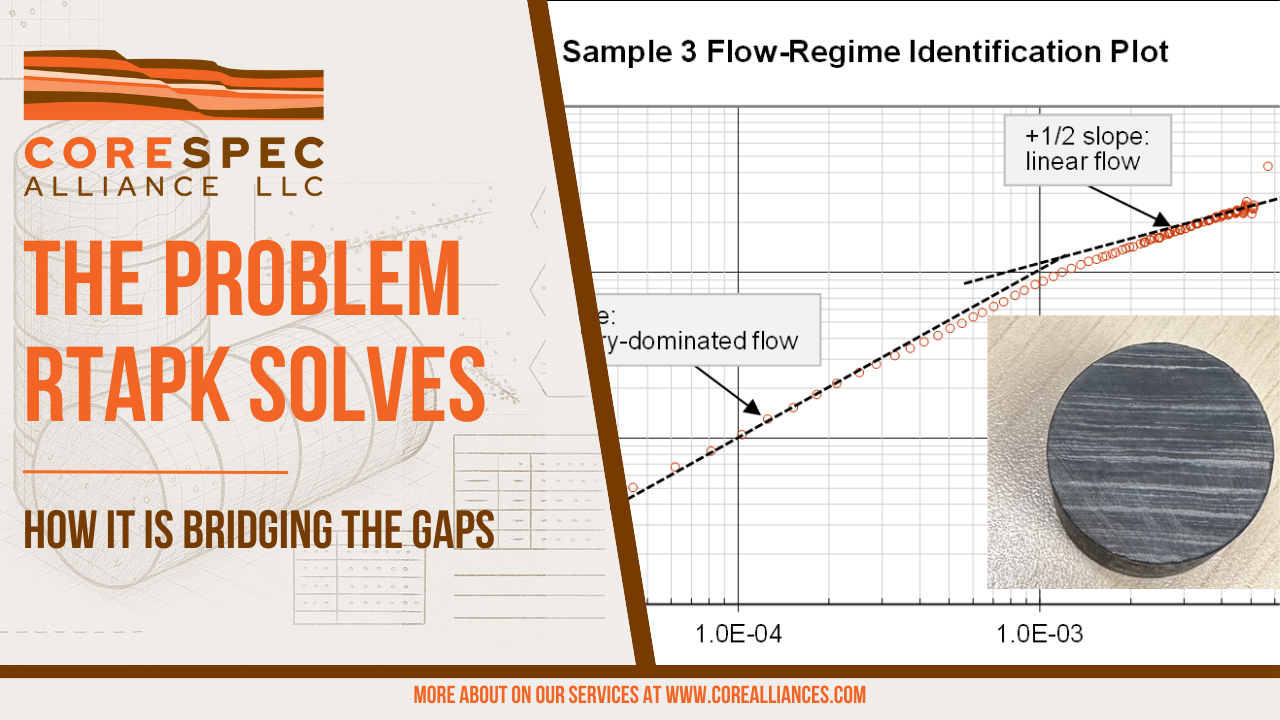The Problem RTAPK Solves
For decades, core analysis has been a critical tool for understanding reservoir properties. But when it comes to unconventional, low-permeability reservoirs, standard laboratory tests often fall short.
The Challenges with Conventional Testing
- Time-Consuming: Traditional methods require extensive test durations, especially in tight rocks, which can significantly delay results.
- Unrealistic Conditions: Lab setups typically don’t reproduce the same boundary conditions and flow regimes that wells encounter in the field.
- Data Disconnect: Field engineers analyze production data using rate-transient methods, but conventional lab tests are not designed to provide data in that same format.
This creates a gap between what happens in the lab and what happens in the reservoir.
How RTAPK Bridges the Gap
RTAPK (Rate-Transient Analysis Porosity & Permeability) closes this disconnect by:
- Reproducing Real Field Conditions inside the lab — applying the same operating conditions as wells in the field.
- Analyzing Results the Same Way Engineers Do in the Field, using rate-transient techniques for permeability and porosity estimates.
- Delivering Faster, More Relevant Data — multiple measurements under stress conditions in a fraction of the time required by conventional methods
By aligning laboratory experiments with real-world reservoir behavior, RTAPK ensures that operators get actionable, field-representative data for better decision-making. Discover more about RTAPK and CoreSpec’s advanced solutions at www.corealliances.com
_____________________________________
Media Contact:
Emile Stretcher
Marketing Director, Infinity Marketing (on behalf of CoreSpec)
emile@infinitymkting.com
(337) 502-2161


No Comments